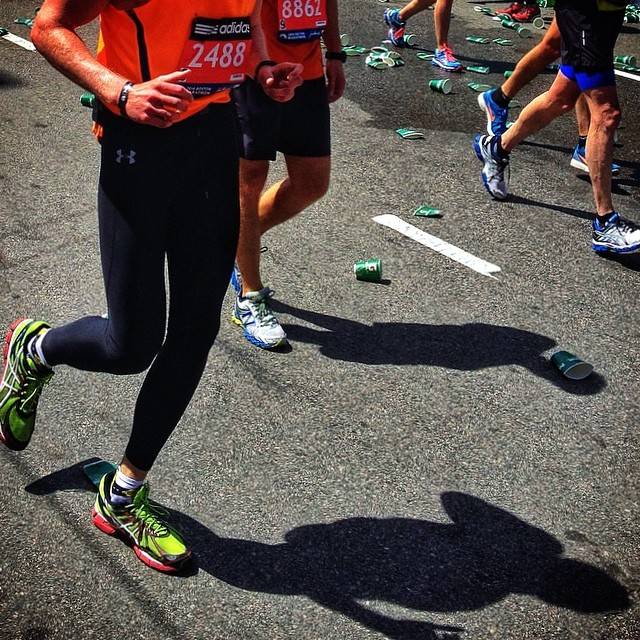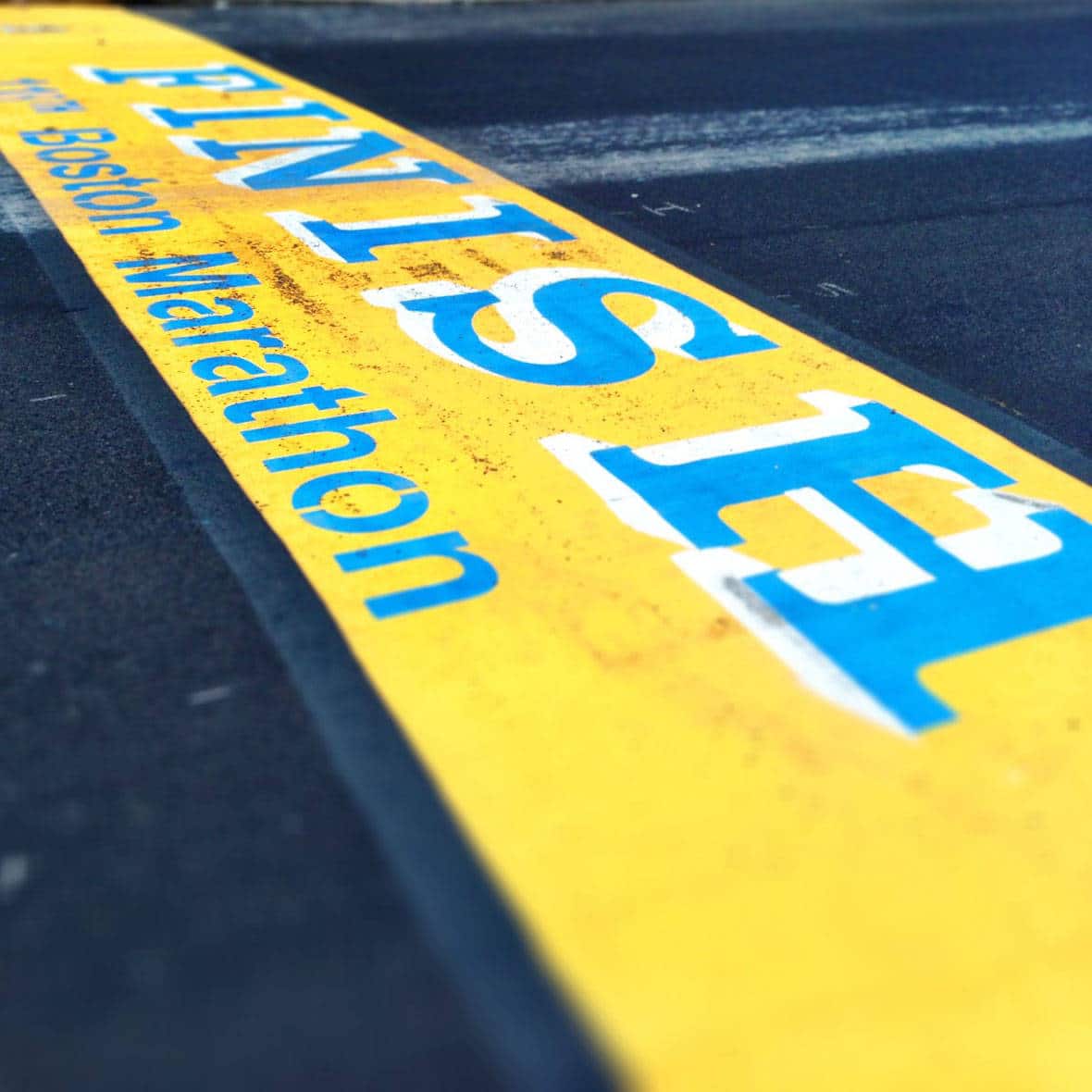My Boston Marathon coach opened our first meeting with “You don’t have to be a strong runner to run the Boston Marathon, you just have to be strong.”
September 2018 marked a bit over two years since I graduated college. Two years spent in denial, two years spent coasting, two years wasted. I found myself stuck in a monotonous rut of the 9-5 work week followed by my weekend routine of going out with my friends drinking beer every weekend, lacking any real motivation or goal to strive for. I have never been able to sit still, and one night amidst a “runners high,” at least that’s what they call it, during my nightly jog down William J. Day Boulevard in South Boston, I thought of the perfect thing to get me out of my funk, run the Boston Marathon. I say they because at this point I am not a runner. I am a mirage of my former self, the North Jersey High School Hockey Player of the Year. The Boston Marathon is known as the World’s Greatest Race, and thousands of the best athletes in the world qualify to run it. So how do I get in? Charity. Ah, perfect. I had a friend who ran for a Boston charity a few years back, and with his sponsorship, a pledge to swipe my credit card for every dollar I came up short of the minimum $7,500 fundraising goal, and countless essays, I was accepted onto the team.
Boston Marathon is known as the World’s Greatest Race
Now that I was accepted, it hit me that I actually have to run 26.2 miles. After a pathetic attempt at my self-routed 5K to Castle Island and back, I contacted our team’s running coach help me plan to train for the Boston Marathon. My coach gave me a beginners plan, which had me running three times a week and two cross training days. My cross training consisted of biking and my personal favorite, ice hockey. I started out running only 13 miles a week, and slowly built up to where I’m at now, where I can run 13 miles without breaking a sweat.
It’s really amazing what the human body can do with the proper training and diet. I am 5’10” and 155 lbs., leaving very little room for weight loss. My goal was to maintain my weight or even gain weight if possible. Just a couple days until race day, I am the same exact weight as when I started. I don’t recommend this to everybody, but I have done this by eating as much as physically possible. I wake up, have a homemade fruit smoothie, peanut butter and banana sandwich, followed up a second breakfast around 10 o’clock in the morning, then a big sandwich for lunch and meat or pasta for dinner. Not necessary the healthiest diet, but I needed to match the mass amount of calories I would burn after all this training.
I ran after work during the week, and filled myself with the motivational mantras I read in books like The Incomplete Book of Running by NPR’s Peter Segal, and bought into it. I even bought myself a pair of Nike Vaporfly 4% shoes after reading the first chapter of Phil Knight’s Shoe Dogs.
During the Saturday long run, I meet up with a group of guys that are also running the Marathon and we run the historic point A to Point B course, which begins in Hopkinton and ends in Boston, with a lot of demoralizing hills in between. The advantage of living in Boston is I get to practice on the course every weekend if I choose to. Boston is unlike any other course. The first six miles are downhill, which beats up your quads, then about 10 miles of somewhat flat terrain through Boston suburbs and then come one of the most challenging obstacles in all of sports, four rolling hills that concludes with the infamous Heartbreak Hill. To the common spectator, the hills don’t look that steep. But at mile 17, they look like you’re running up into space. They hills go on forever. I have now run the hills six times and feel ready to attack them on race day.

It would be a tremendous disservice to all readers if I did not mention how my body has felt throughout the rigorous four months of pavement pounding.
At our animalistic evolutionary state, human beings are meant to run. When we were hunter-gatherers, humans’ advantage was the ability to outlast their prey and eventually catch up to whomever they were hunting. Long distance running is distinctly unique to human beings. Somewhere along the evolutionary process, we lost that natural ability. Thus makes intense training extremely necessary. The pounding that the body endures during the four-month training process takes an enormous toll on all muscles, joints, ligaments and the mind. It is extremely important to take the healing process seriously. I was coached to foam roll before runs, and stretch for half the amount of time I ran for post run. Aches and pains don’t even describe it. I am not a very flexible person by nature, so I favored some parts of my legs while running, which resulted in injuries in other parts of my legs. The roads first attempt at breaking me was by making my Achilles tendon feel like a steel pole. I could barely move throughout the month of December. Because of this setback, I favored other parts of my legs, which resulted in knee and ankle pains. It felt like every time I ran, something new would come up. I began to look for all different types of treatments and ailments. I took ice baths, wore tendonitis-preventing socks, and consumed way to much Advil. However none of those seemed to be working.
My roommate, Conor, introduced me to Blue Harvest CBD balm, and looking back, this changed my Marathon experience. I began applying the CBD balm before and after each run to help aid in my workout recovery. Immediately, my legs would feel lighter and I could finally focus on something other then sheer agony while running. The inflammation in my feet began to fade. I don’t know how I ran without it for the first two months of training. The best part is I can apply this to any part of my body. I started with my feet, but now use it on my knees, ankles, even my neck, which embarrassingly gets sore from my terrible posture while staring at my dual computer screens at work all day.
CBD is the perfect supplement for any athlete in training, but especially for Marathoners.
Four months in and two days until race day, I now consider myself a runner. During one frigid Boston night and six miles of self- reflection, I found the thing like most about running is there is a direct correlation between how hard you work and your success. Most things that happen to us in this crazy world are out of our control. Running however, I am in control. How hard I train and how well I can recover, will directly impact my race day. There is no goalie, defender, or goal post to stop me from the results I want. I grew up a hockey player and sometimes, no matter how many hours you spend taking slap shots in the driveway, the puck doesn’t bounce your way.
Running is between you and the road.
Remaining healthy is the most important thing. With the proper strategy, training, and help along the way with products like CBD, there is nothing stopping you from peak performance.
– First time Boston Marathoner, Peter McGinley, 25, of Boston, Massachusetts
